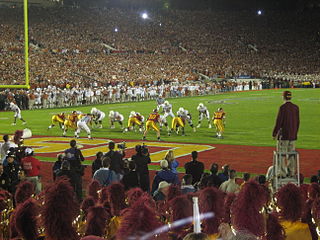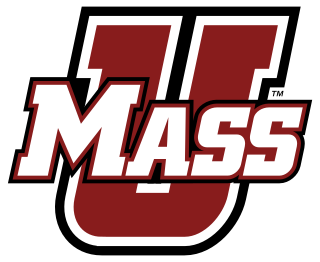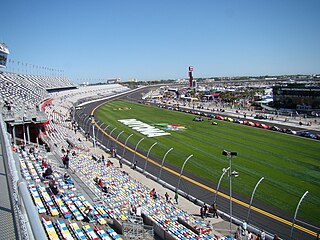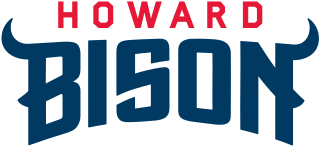
The Atlantic Coast Conference (ACC) is a collegiate athletic conference located in the United States. Headquartered in Charlotte, North Carolina, the ACC's fifteen member universities compete in the National Collegiate Athletic Association (NCAA)'s Division I. ACC football teams compete in the NCAA Division I Football Bowl Subdivision. The ACC sponsors competition in twenty-seven sports with many of its member institutions held in high regard nationally. Current members of the conference are: Boston College, Clemson, Duke, Florida State, Georgia Tech, Louisville, Miami, North Carolina, NC State, Notre Dame, Pittsburgh, Syracuse, Virginia, Virginia Tech, and Wake Forest.

The Bowl Championship Series (BCS) was a selection system that created four or five bowl game match-ups involving eight or ten of the top ranked teams in the NCAA Division I Football Bowl Subdivision (FBS) of American college football, including an opportunity for the top two teams to compete in the BCS National Championship Game. The system was in place for the 1998 through 2013 seasons and in 2014 was replaced by the College Football Playoff.

In North America, a bowl game, or simply bowl, is one of a number of postseason college football games that are primarily played by teams belonging to the NCAA's Division I Football Bowl Subdivision (FBS). For most of its history, the Division I Bowl Subdivision had avoided using a playoff tournament to determine an annual national champion, which was instead traditionally determined by a vote of sports writers and other non-players. In place of such a playoff, various cities across the United States developed their own regional festivals featuring postseason college football games. Prior to 2002, bowl game statistics were not included in players' career totals. Despite attempts to establish a permanent system to determine the FBS national champion on the field, various bowl games continue to be held because of the vested economic interests entrenched in them.

The Louisville Cardinals are the NCAA athletic teams representing the University of Louisville. The Cardinals teams play in the Atlantic Coast Conference, beginning in the 2014 season. While playing in the Big East Conference from 2005 through 2013, the Cardinals captured 17 regular season Big East titles and 33 Big East Tournament titles totaling 50 Big East Championships across all sports. On November 28, 2012, Louisville received and accepted an invitation to join the Atlantic Coast Conference and became a participating member in all sports in 2014. In 2016, Lamar Jackson won the school its first Heisman Trophy.
The Syracuse Orange are the athletic teams that represent Syracuse University. The school is a member of NCAA Division I and the Atlantic Coast Conference. Until 2013, Syracuse was a member of the Big East Conference.

The Indiana Hoosiers are the intercollegiate sports teams and players of Indiana University Bloomington, named after the colloquial term for people from the state of Indiana. The Hoosiers participate in Division I of the National Collegiate Athletic Association (NCAA) in 24 sports and became a member of the Big Ten Conference on December 1, 1899. The school's official colors are cream and crimson.

The 2004 NCAA Division I-A football season was the highest level of college football competition in the United States organized by the National Collegiate Athletic Association (NCAA). The regular season began on August 28, 2004 and ended on December 4, 2004. The postseason concluded on January 4, 2005 with the Orange Bowl, which served as the season's BCS National Championship Game.

The 1971 NCAA University Division basketball tournament involved 25 schools playing in single-elimination play to determine the national champion of men's NCAA Division I college basketball. It began on March 13, 1971, and ended with the championship game on March 27 in Houston, Texas. A total of 29 games were played, including a third-place game in each region and a national third-place game.

The Golden Hurricane are the athletic teams that represent the University of Tulsa. These teams are referred to as the Tulsa Golden Hurricane. Before adopting the name Golden Hurricane in 1922, the University of Tulsa (TU) had many unofficial team nicknames including Kendallites, Presbyterians, Tulsans, Tigers, Orange and Black, and Yellow Jackets. The name "Golden Tornadoes" was chosen by TU football coach H.M. Archer (1922–24) based on new gold and black uniforms and a remark made during practice of the team "roaring through opponents". However, it was quickly discovered that the same name had been chosen in 1917 by Georgia Tech. Archer then substituted the term "hurricane" for "tornado" and a team vote prior to leaving for the game against Texas A&M confirmed the official nickname as "Golden Hurricane".

The Miami Hurricanes are the intercollegiate sports teams that represent the University of Miami in Coral Gables, Florida. The Hurricanes compete in Division I of the National Collegiate Athletic Association. The University of Miami's football team has won five national championships and its baseball team has won four national championships.

The UMass Minutemen are the athletic teams that represent the University of Massachusetts Amherst; strictly speaking, the Minutemen nickname applies to men's teams and athletes only — women's teams and athletes are known as Minutewomen. The Minutemen and Minutewomen compete in NCAA Division I sports competition primarily as members of the Atlantic 10 Conference. UMass is one of only 16 universities in the nation that plays Division I FBS football and Division I men's ice hockey. The nickname is also applied to club teams that do not participate within the NCAA structure.

The UCF Knights are the athletic teams that represent the University of Central Florida in unincorporated Orange County, Florida near Orlando. The Knights participate in the National Collegiate Athletic Association's (NCAA) Division I as a member of the Big 12 Conference. Since men's soccer is not sponsored by the Big 12, they play in the Sun Belt Conference.

The U.S. state of Florida has three National Football League teams, two Major League Baseball teams, two National Basketball Association teams, two National Hockey League teams, two Major League Soccer teams and 13 NCAA Division I college teams.

The Howard Bison and Lady Bison are the intercollegiate athletic teams that represent Howard University, located in Washington, D.C. The Bison compete in Division I of the National Collegiate Athletic Association (NCAA)'s and Division I Football Championship Subdivision (FCS) and are members of the Mid-Eastern Athletic Conference for most sports. On July 16, 2015, the Athletics Department unveiled new logos, replacing the previous logo that was nearly identical to that used by the National Football League's Buffalo Bills.

The FIU Panthers are the athletic teams representing Florida International University, an American public university located in Miami, Florida. The Panthers currently compete in National Collegiate Athletic Association (NCAA) Division I athletics as members of Conference USA. The men's soccer and swimming & diving teams compete in the American Athletic Conference. Until 2011, they were known as the FIU Golden Panthers.

In American college athletics, a vacated victory is a win that the National Collegiate Athletic Association (NCAA) has stripped from an athletic team, usually as punishment for misconduct related to their sports programs. The team being punished is officially stripped of its victory, but the opposing team retains its loss—thus, vacated victories are different from forfeits, in which the losing team is given the win. The practice of vacating victories has been criticized by players and sports journalists, but remains one of the NCAA's preferred penalties for infractions related to past misconduct. Over 160 college football teams and 270 college basketball teams have had wins vacated.
The 1972 NCAA University Division soccer tournament was the 14th annual tournament organized by the National Collegiate Athletic Association to determine the national champion of men's college soccer among its University Division members in the United States.
The 1973 NCAA Division I soccer tournament was the 15th annual tournament organized by the National Collegiate Athletic Association to determine the national champion of men's college soccer among its Division I members in the United States. Beginning with this season, the NCAA changed its classification system, and the former University Division was rebranded as Division I.

The Howard Bison men's soccer team is a varsity intercollegiate athletic team of Howard University in Washington, D.C., United States. The team is an associate member of the Northeast Conference, which is part of the National Collegiate Athletic Association's Division I. Howard's first men's soccer team was fielded in 1965. The team plays its home games at Greene Stadium near the Park View neighborhood of the District. The Bison are coached by Howard alumnus and former U.S. national team player, Phillip Gyau.
The 1971 Howard Bison men's soccer team represented Howard University in Washington, D.C. during the 1971 NCAA men's soccer season. The team finished the season undefeated and won the 1971 NCAA tournament, defeating the Saint Louis Billikens 3–2 in the final. However, following an anonymous tip, the NCAA investigated the team and ruled they had fielded ineligible players. In January 1973, the NCAA vacated the national championship and banned the Bison from the 1973 playoffs. The team protested the punishment, arguing that they had been targeted because of their success as a historically black university (HBCU). Although they were unable to get the 1971 championship reinstated, Howard went on to win the 1974 NCAA tournament and again beat Saint Louis in the final.















